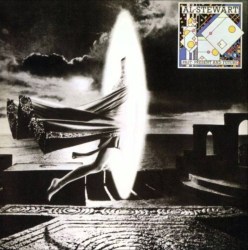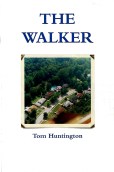You are currently browsing the tag archive for the ‘His Last Bow’ tag.
 I’ve been walking through a world that has undergone some wrenching change. Newspapers lying at the end of driveways bear headlines about Pennsylvania being in lockdown. A sign on a neighbor’s lawn reads, “You Are Not Alone.” The house being built down near the creek stands empty and unfinished. Life as we used to know it has come to a screeching halt, all thanks to a virus too small to be seen with the naked eye.
I’ve been walking through a world that has undergone some wrenching change. Newspapers lying at the end of driveways bear headlines about Pennsylvania being in lockdown. A sign on a neighbor’s lawn reads, “You Are Not Alone.” The house being built down near the creek stands empty and unfinished. Life as we used to know it has come to a screeching halt, all thanks to a virus too small to be seen with the naked eye.
And yet. Some people are out mowing their lawns and others are taking walks. Kids whose schools have been closed play on the sidewalks, and a couple sitting on lawn chairs in front of their garage waves at me as I pass. Abnormal, meet normal.
One thing I listened to on my walk the other day was “Nostradamus” by Al Stewart, a live version of the song that originally appeared on his 1973 album Past, Present and Future.
Like many people, I first heard of Al Stewart when “Year of the Cat” became a hit in 1976. I bought the album and played it a lot. The opening piano notes of the title song immediately cast me back to the 1970s. There’s so much to love about “Year of the Cat”—the way the band kicks in after the piano intro, the string arrangement that blends into the guitar solo, which starts as a delicate acoustic before abruptly shifting into soaring electric that segues into a classic 1970s sax solo. The lyrics perfectly capture “a morning from a Bogart movie in a country where they turned back time.”
I also love like the album cover, one of the great works done by the Hipgnosis collective. I was also fascinated by the cover of Stewart’s earlier Past, Present, and Future album. It depicted what appeared to be the Marvel Comics character Dr. Strange disappearing into a mystical portal conjured up atop some damp seaside battlements. The cover of Stewart’s next album, Modern Times, showed us where Dr. Strange was going, as he materializes in a flash of light on the lawn of a stately mansion where a gangster in a fancy car addresses a beautiful woman who has turned her back on him. (Wikipedia informs me that the gangster is Stewart himself, the woman is Pink Floyd guitarist David Gilmour’s first wife, and the car—a Cord—belonged to Led Zeppelin’s Jimmy Page. That’s a lot to unpack.)
I listened to those albums a lot, and to Time Passages once that was released. They form a significant portion of the life soundtrack from my later high school years and my freshman year in college. I will be the first to admit that they aren’t particularly “cool.” Stewart’s reedy tenor sounds kind of twee and his obsession with historical themes is a little nerdy. He wrote a song about President Warren G. Harding! “Roads to Moscow,” another historical ditty from Past, Present and Future, remains my favorite song about World War II’s Eastern Front. I don’t know any others. I do love that song, though, all eight minutes of it. It has a soaring grandeur about it, and a tragic irony, too, for its narrator gets sent to a Stalinist gulag after spending years fighting the Nazis for the Russia he loves.
“Nostradamus” is the standout track from that album, though. It’s a song about Frenchman Michel de Nostredame. Born in 1503, Nostradamus seemingly predicted future events in his poetry. (John Lovitz once portrayed him on Saturday Night Live and gave him the irritating habit of saying, “I knew you’d say that” to people in conversation.) Listen to the song and you might think Nostradamus was on to something. In the first part, Stewart makes it sound like this mystical Frenchman foresaw the execution of England’s King Charles I, the rise of Napoleon, and the ravages of “Hister, a captain of greater Germany.” Getting Hitler’s name slightly wrong just makes it seem like Nostradamus was doing his best to peer through the misty veil of years. After a lengthy instrumental break, Stewart sings some verses about predictions that hadn’t come true—yet. According to the liner notes by author Erika Cheetham, Nostradamus was predicting the rise of the Anti-Christ, who would come from Asia and start a war that would last 27 years. “The visions of Nostradamus of war and doom are similar to those of every prophet through the ages,” Cheetham wrote. “Perhaps he may yet be honored in his own country, and his warnings not ignored by future generations.” I should point out that Cheetham believed this war would begin “at the end of the 1970’s,” so it appears we dodged that bullet, at least for now.
I bought the album at a time when I was really into things mysterious and inexplicable. I read books about UFOs and the Bermuda Triangle and devoured magazines articles about bigfoot and the Loch Ness monster. I knew all about the disappearance of Flight 19 and the Marine Sulphur Queen (both alleged victims of the Bermuda Triangle) and the story of how Betty and Barney Hill were abducted by a UFO outside Exeter, New Hampshire in 1961. I even picked up a slim volume called The Prophecies of Nostradamus at Mr., Paperback, the bookstore in Augusta, Maine, where I whiled away many hours of my young life. (The little sticker still stuck inside the cover tells me I paid $1.79 for the book.) I’m not sure I believed that any of the stuff I read was true, but I loved the little thrill I got thinking that maybe, just maybe, there were unknown things lurking outside our prosaic lives. I got the same tingle listening to “Nostradamus” and reading Cheetham’s liner notes.
Did Nostradamus have anything to say about our current days of dread, sickness and anxiety? Apparently not. He did have first-hand knowledge of plagues, though. My little book tells me he spent three years in Aix “attending on victims of the plague which broke out in 1546 and raged fiercely and for a long time.” I don’t know if I would want Nostradamus to predict the future right now, unless he could say, “It’s all going to be fine. Don’t worry. Chill.” That would be a comfort during these troubled times.
One comfort I have found recently is in the world of Sherlock Holmes. I’ve read or re-read “writings on the writings” and I’ve returned to the original stories, some of which I haven’t read in decades. It got me thinking about a passage near the end of “His Last Bow,” chronologically the last Sherlock Holmes story. It takes place near the start of World War I, as Holmes—with a little help from Dr. Watson—takes down the German spy Von Bork. Afterwards, Holmes and Watson have “a quiet talk” on the terrace of Von Bork’s residence. It includes this dialogue:
“There’s an east wind coming, Watson.”
“I think not, Holmes. It is very warm.”
“Good old Watson! You are the one fixed point in a changing age. There’s an east wind coming all the same, such a wind as never blew on England yet. It will be cold and bitter, Watson, and a good many of us may wither before its blast. But it’s God’s own wind none the less, and a cleaner, better, stronger land will lie in the sunshine when the storm has cleared.”
I am not a religious man, and I don’t believe that history’s horrors—whether they are wars or diseases—derive from some omnipotent being that sees fit to torment the world. Still, I do derive comfort from the idea that when we emerge from this coronavirus nightmare we will, indeed, be better and stronger. But I don’t know for sure. I am no Nostradamus.
 Like what you read here? You can find all my previous Walker columns in one easy-to-handle volume. Order your copy now!
Like what you read here? You can find all my previous Walker columns in one easy-to-handle volume. Order your copy now!




